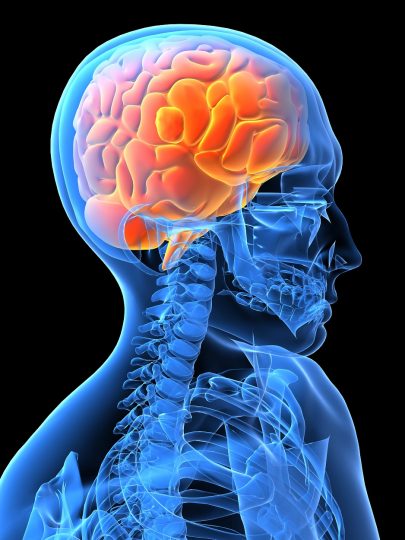
Guest blog: Alzheimer's and the AI Grand Challenge
Professor StJohn Crean, Pro Vice Chancellor University of Central Lancashire (UCLan), on Alzheimer's research and leading the way to meaningful management
20th September 2019
There are an estimated 44 million people globally living with dementia, a number estimated to double by 2030. The UK accounts for nearly 900,000 of these currently, a figure set to reach 2 million by 2050. The current cost of the disease to health care services is estimated to be an annual £26 billion. The “Prime Minister’s challenge on dementia 2020” states that 60% of cases of dementia are due to Alzheimer’s disease (AD). It is no coincidence that Theresa May, on announcing the launch of the Industrial Strategy (IS), highlighted the urgent need to make progress on prevention and treatment for the disease making a specific target of early diagnosis aligned to the Artificial Intelligence Grand Challenge.
The UCLan Research Centre for Brain & Behaviour has taken up that challenge. It has aligned its research to address the targets outlined in the IS Grand Challenges, making the fight against AD a key strategic priority. To that end, we have brought together a diverse group of expert scientists within the Centre to collectively address this devastating disease from a number of different directions.
Having developed a patented advanced 3-D bioscaffold model of the blood brain barrier (BBB), researchers in the Centre are harnessing this platform to explore the impact of inflammation on BBB integrity, which if compromised in AD and might permit toxic virulence factor access to the intracerebral tissues. The work links with another group who have demonstrated the presence of oral bacteria and their virulence factors in human AD brains and those of apo-E negative mice, a model designed with collaborative colleagues in the USA. This work supports the existence of a link between systemic inflammation and the cerebral Alzheimer’s pathology. Extending this concept further, Centre members are also exploring whether gut bacteria may exert a similar effect on brain tissue via their contribution to the inflammatory process and disruption of the so-called gut-brain axis, a recently identified factor in the onset of Parkinson’s disease.
Ground-breaking work is also exploring possible defects in the molecular mechanisms of neurotransmitter release in neurodegenerative disease, by performing cutting edge work centred on disturbed nerve cell transmission in neurodegenerative diseases. Further, this group have demonstrated the strong link with disturbed long-term memory retrieval and its role in upstream AD diagnosis. Using leading innovative techniques and working in collaboration with colleagues in Germany, the group is creating sector-leading evidence that nerve ending-associated mitochondrial dysfunction is key to understanding the deterioration in functional activity in Alzheimer’s disease.
In a drive to develop much needed “Point of Care” diagnostic technology, Centre members are carrying out internationally renowned spectroscopic assessment of tissues obtained from AD patients with minimal body invasion. Samples of blood and completely non-invasively obtained surface swabs have been shown by Raman Spectroscopic Examination, to reveal specific hallmarks of AD, not only during the ravages of the disease but as it seems to be emerging, some time before the symptoms begin to appear. Future work will seek to advance this vital diagnostic technology to the clinical primary care arena and will revolutionise the timing of diagnosis and initiation of management approaches.
Alongside these projects an additional impactful area of work is emerging in human iPSC modelling which looks to bridge the gap between animal and human studies to provide clinically-relevant disease models. Focusing on the most prevalent yet least-understood sporadic-type AD group, this technology permits exploration of early disease mechanisms, creating adjunctive hope for the development of an upstream diagnostic breakthrough. A particular focus of this work is in challenging the “neurone-centric view” of dementia and understanding the roles of non-neurone cells in disease onset to reveal new avenues for therapeutic intervention, placing the team’s work at the forefront of this emerging field.
The Centre has benefitted from UCLan’s research excellence in the field of brain tumour research. The team whilst exploring the underlying molecular biology of these cancers have, like many ground-breaking studies, uncovered a surprising yet exciting link between gliomas and AD. This trailblazing work has spawned international collaborations and promises to influence the global approach to research in both of these diseases.
Supported by an ever-increasing number of external grant awards and working with a range of international collaborators, UCLan’s Research Centre for Brain & Behaviour promises to influence the future of Alzheimer’s disease research and thus clinical management world-wide and establish the University and the North West, as one the nation’s leading AD research regions.
Related News Articles
COMMENT: Response to Chancellor's Spending Review announcement
The NHSA's response to the Government's June 2025 Spending Review announcement
Read the articleBlog: Making Connections at BioJapan
The NHSA's Helen Cole summarises her recent trip to BioJapan as part of the MedCity delegation.
Read the articleEvolving the UK Advanced Therapies research-investor community
In a high energy networking meeting, academics showcased exciting research projects open to collaboration and investment from the North of England and Scotland.
Read the article